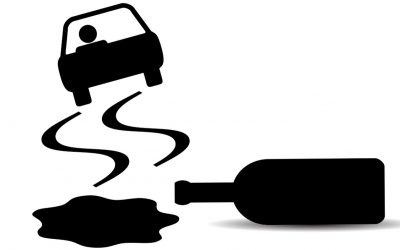
In California, you can aid and abet a DUI if you encourage, assist, or support someone in committing the crime, regardless of your role’s size. Aiding and abetting isn’t a separate crime; instead, you’re charged with the underlying crime on the theory that you helped the perpetrator.
If convicted, you face the same penalties as the primary offender, as though you committed the crime yourself. This holds true even in DUI cases, meaning significant consequences for those who aid and abet a DUI.
Consulting with a Los Angeles DUI lawyer can provide the guidance you need. They will offer the support to work through the legal challenges and work toward the best possible outcome for your case.
What Are The Penal Codes in California For Aiding and Abetting?
California Penal Codes (Section 31) outlines aiding and abetting. This can involve advice, encouragement, threats, commands, or convincing a child or mentally incompetent person to commit a crime.
Essentially, aiding and abetting means being an accomplice and sharing guilt with the person who committed the crime. A skilled lawyer knows the ins and outs of California DUI penalties and can help you work through them.
The Role of Aiding and Abetting in Criminal Prosecutions
Under California law, aiding and abetting isn’t a separate crime but a way to include everyone who helped facilitate a criminal act. This allows prosecutors to involve multiple defendants, potentially turning participants into witnesses against one another. This approach significantly strengthens the prosecution’s case.
Legal Defense and Burden of Proof
Never speak to police or investigators without first consulting a criminal defense attorney. The prosecution must prove the following elements beyond a reasonable doubt:
- A crime was committed by another person.
- You knew about the perpetrator’s criminal plan.
- You intended to aid or encourage the crime.
- Your actions did indeed help the perpetrator.
Accessory after the fact, defined in the California Penal Code (Section 32), involves helping a perpetrator escape after they have committed a felony.
What Does “Aid a Crime” Mean?
Aiding and abetting are two parts of supporting a crime. Aiding involves helping someone commit a crime, while abetting means encouraging or advising someone to commit a crime.
Key elements of aiding include:
- Voluntary help: Your aid must be given willingly, without coercion or deception.
- Intentional aid: You must have knowingly provided assistance to someone committing a crime.
- Actual assistance: The crime must have been completed, and your help must have contributed to its commission.
You don’t need to be at the crime scene to be charged with aiding; however, not being present might be a viable defense strategy.
What Does “Abet a Crime” Mean?
Abetting involves actions that encourage or support a crime. This support can be active, like instigating, or passive, such as being present during planning. Simply knowing a crime is about to occur and doing nothing to stop it can be seen as supporting the offense.
Proof of Abetting
For a charge of abetting, the prosecution must demonstrate that you shared the intent to commit the crime with the perpetrator. This shared intent is imperative for proving your involvement in the offense.
Can I Get in Trouble for Allowing Someone to Drive Drunk?
In many states, you could face charges like aiding and abetting a DUI, reckless endangerment, or gross negligence if you let someone drive while knowing they’re intoxicated. Allowing an impaired person to drive can lead to serious legal consequences.
Being held criminally liable for such actions is a real possibility, making it risky to knowingly permit someone to drive drunk. The law takes these situations seriously to prevent potential harm and ensure public safety.
Penalties for Aiding and Abetting in a DUI
First-time DUI offenders can face up to 6 months in jail and fines reaching $10,000. Similarly, those convicted of aiding and abetting a DUI are subject to comparable penalties, regardless of their level of involvement.
The consequences for assisting in a DUI become more severe with each subsequent conviction, increasing the legal penalties significantly. Repeated offenses lead to harsher punishments, reflecting the seriousness and gravity of the crime.
Is It Against the Law to Have Car Keys While Drunk?
Yes, there is a lesser-known offense called “Drunk in Charge.” This means you can be charged if you are over the legal alcohol limit and found with your car keys, even if you’re not driving. Simply being near your vehicle with the keys can lead to criminal charges under this law.
The intent of this law is to prevent potential harm by stopping impaired individuals from getting behind the wheel. Even if you have no intention of driving, being in possession of your car keys while intoxicated can be enough to warrant legal action.
How Can a Lawyer Help If You’re Charged with Aiding and Abetting a DUI?
If you’re facing accusations of aiding and abetting a DUI, a lawyer can offer valuable legal advice and representation in court. They will work to develop a strong defense strategy tailored to your situation.
A lawyer can also negotiate on your behalf, aiming to reduce charges or penalties. Throughout the legal proceedings, they will protect your rights and guide you to help you understand your options and next steps.
A Los Angeles DUI Lawyer Can Help
Facing charges for aiding and abetting a DUI can be stressful, but having a skilled and knowledgeable lawyer makes a big difference. They’ll work with you to build a solid defense strategy that fits your case.
If you’re facing accusations related to aiding and abetting a DUI, the Los Angeles DUI Attorney can connect you with experienced lawyers. They’ll guide you through the process and ensure your rights are protected.
Don’t go through this alone. Contact a Los Angeles DUI Attorney for the support and representation you need to handle your legal challenges.






